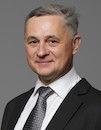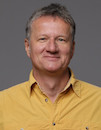Electronic Equipment Power Supplies
Data is displayed for academic year: 2023./2024.
Lecturers
Laboratory exercises
Course Description
The first part of the course will give an overview of energy sources that can practically be used to power electronic devices. For each source selected, an overview of the parameters will be given, which will be compared with the parameters of the other sources. The second part of the course will give an analysis of the regulator parameters with respect to the power requirements of the device. A methodology will be proposed to arrive at concrete solutions as well as an analysis of the good and bad sides of particular types of solutions. The back of the course will provide guidelines for the design of electronic and electromechanical parts of a power source.
Study Programmes
University graduate
[FER3-HR] Audio Technologies and Electroacoustics - profile
Elective Courses
(1. semester)
(3. semester)
[FER3-HR] Communication and Space Technologies - profile
Elective Courses
(1. semester)
(3. semester)
[FER3-HR] Computational Modelling in Engineering - profile
Elective Courses
(1. semester)
(3. semester)
[FER3-HR] Computer Engineering - profile
Elective Courses
(1. semester)
(3. semester)
[FER3-HR] Computer Science - profile
Elective Courses
(1. semester)
(3. semester)
[FER3-HR] Control Systems and Robotics - profile
Elective Courses
(1. semester)
(3. semester)
[FER3-HR] Data Science - profile
Elective Courses
(1. semester)
(3. semester)
[FER3-HR] Electrical Power Engineering - profile
Elective Courses
(1. semester)
(3. semester)
[FER3-HR] Electric Machines, Drives and Automation - profile
Elective Courses
(1. semester)
(3. semester)
[FER3-HR] Electronic and Computer Engineering - profile
Elective Courses
(1. semester)
(3. semester)
Elective Courses of the Profile
(1. semester)
(3. semester)
[FER3-HR] Electronics - profile
Elective Courses
(1. semester)
(3. semester)
Elective Courses of the Profile
(1. semester)
(3. semester)
[FER3-HR] Information and Communication Engineering - profile
Elective Courses
(1. semester)
(3. semester)
[FER3-HR] Network Science - profile
Elective Courses
(1. semester)
(3. semester)
[FER3-HR] Software Engineering and Information Systems - profile
Elective Courses
(1. semester)
(3. semester)
[FER2-HR] Computer Engineering - profile
Recommended elective courses
(3. semester)
[FER2-HR] Electronic and Computer Engineering - profile
Recommended elective courses
(3. semester)
[FER2-HR] Electronics - profile
Recommended elective courses
(3. semester)
Learning Outcomes
- Evaluate system power requirements to real electronic circuits and devices
- Assess what real power source should be used to power the system
- Evaluate which real electronic circuitry is the optimal solution for powering the system
- Recognize causes of electromagnetic compatibility problems in power supplies and understand solutions to mitigate them
- Calculate parameters and choose components for thermal management in power supply
- Design power supply on a printed circuit board level
Forms of Teaching
Lectures
Lectures are focused on theoretical and practical aspects of key course topics (three hours per week).
LaboratoryStudents are obliged to take laboratory exercises (13 hours). During the laboratory exercises, students learn about principles of power supplies.
Grading Method
| Continuous Assessment | Exam | |||||
|---|---|---|---|---|---|---|
| Type | Threshold | Percent of Grade | Threshold | Percent of Grade | ||
| Laboratory Exercises | 50 % | 20 % | 50 % | 20 % | ||
| Mid Term Exam: Written | 50 % | 40 % | 0 % | |||
| Final Exam: Written | 50 % | 40 % | ||||
| Exam: Written | 50 % | 40 % | ||||
| Exam: Oral | 40 % | |||||
Comment:
Continuous evaluation encompasses two written exams (midterm and final exam). Students who do not satisfy at continuous evaluation must undertake both the written and oral exam. Students are questioned at the laboratory exercises.
Week by Week Schedule
- Power line
- Electrochemical power sources, Ultracapacitors
- Tradeoffs in system power supplies
- Linear power supplies, Switching power supplies
- Design of linear power supplies, Design of low dropout linear power supplies
- Rules for design of power supply PCB's
- Parameters of commercially available power sources
- Midterm exam
- Power MOSFET, IGBT
- Power diode, Power JFET
- Tyristors, triacs, SOAR, electronic relays
- Cooling of electronic systems
- High power, high frequency transformer
- High current inductor, High voltage, high current capacitor
- Final exam
Literature
For students
General
ID 240679
Winter semester
5 ECTS
L1 English Level
L1 e-Learning
45 Lectures
0 Seminar
0 Exercises
15 Laboratory exercises
0 Project laboratory
0 Physical education excercises
Grading System
90 Excellent
75 Very Good
60 Good
50 Sufficient


 Pristupačnost
Pristupačnost


